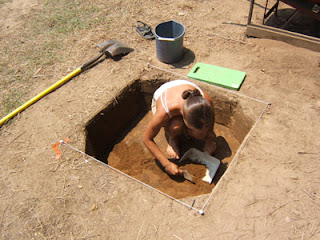When I solicited book recommendations, Eldnar made a push for Gary Habermas’s The Case for the Resurrection of Jesus, and I thought his reasoning deserved a response. Eldnar wrote:
The reason I believe “The Case for the Resurrection” should be fairly early in your reading list is simple. The fact is, the whole of Christianity stands or falls based on the resurrection. Christianity makes a bold, historical claim; before Karl Popper, the apostle Paul already knew about “falsifiability” and provided criteria. Here’s what he said, “…if Christ has not been raised, then our preaching is in vain and your faith is in vain. We are even found to be misrepresenting God, because we testified about God that he raised Christ, whom he did not raise if it is true that the dead are not raised. For if the dead are not raised, not even Christ has been raised. And if Christ has not been raised, your faith is futile and you are still in your sins.” Wow. How many religions contain a built in debunking test?
…I think it makes sense not to dance around peripheral issues and go straight to the heart of the matter, the evidence for the resurrection. No need to read “Orthodoxy” if the resurrection didn’t happen, no need to read “Confessions” (great book, I just finished it this week BTW), or “Book of Mormon” if the resurrection didn’t happen.
I’ve taken a crack at one book on the resurrection, and others are probably better, but I’m not that interested in reading them right now. I’ve taken some history courses (and no archeology courses) and sooner or later, the evidence on both sides starts to go over my head. I’ve seen arguments on both sides about the date the gospels were written, but I don’t have access to the primary source documents or the expertise that would be required to interpret them myself. For me, reading historical arguments usually comes down to an appeal to authority.
My crude heuristic is to assume that the factual assertional of an apologetic or skeptic work are true and then examine the reasoning that leads to the conclusion and the level of confidence the author applies to the result. Plenty of works (including Strobel) don’t pass this test. I can tell that they’ve strawmanned the alternatives, or claimed that more likely is the same as being certain, or attribute too much importance to a single piece/kind of evidence not having turned up etc., etc.
When a work passes this test, I don’t really know what to do. I can invalidate authors, but I can’t validate arguments. In other spheres of my life, I assent to plenty of historical facts I can’t prove, but (a) there’s greater consensus/evidence and (b) these facts make less of an impact on my life. To add to the problem, I don’t think that, if Christianity were true, it would logically require that there exist sufficient evidence of the Resurrection. A lack of evidence doesn’t definitively debunk the Christian position.
As a result, I don’t spend a lot of time investigating the historical evidence for Jesus. I assume that, if Christianity is true, it has discernible effects on the world that I live in. Evidence of miraculous healings, philosophical proof that morality was contingent on God, or even some variant on G.K. Chesterton’s labeling of the Church as “a truth-telling thing” would all be more likely to persuade me than an academic debate on authorship of the Gospels. For the time being, I’m inclined to stick with the arguments I can understand and participate in.












